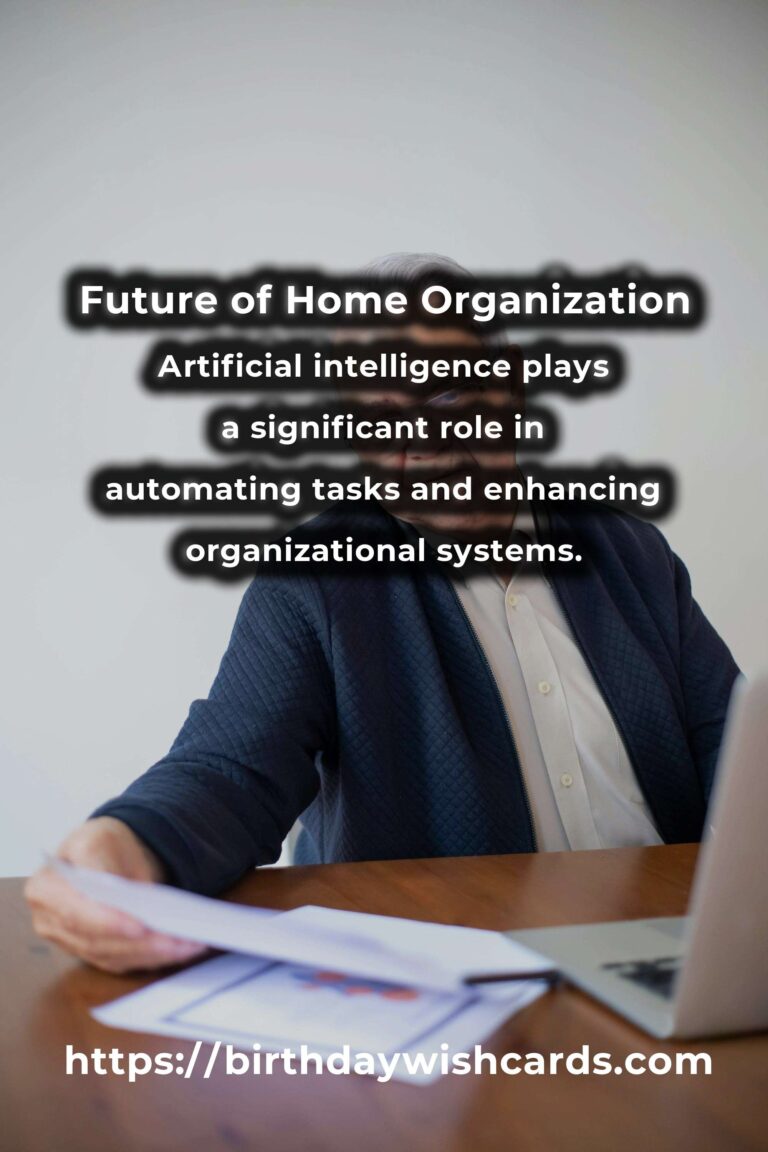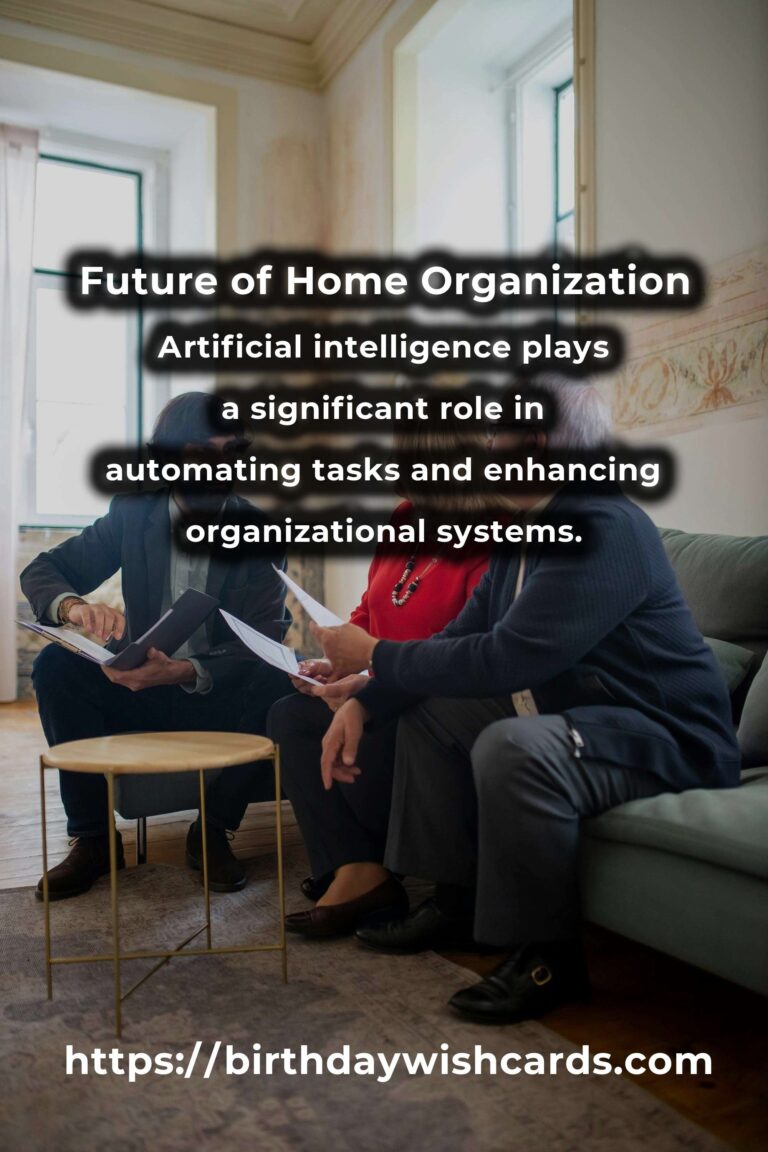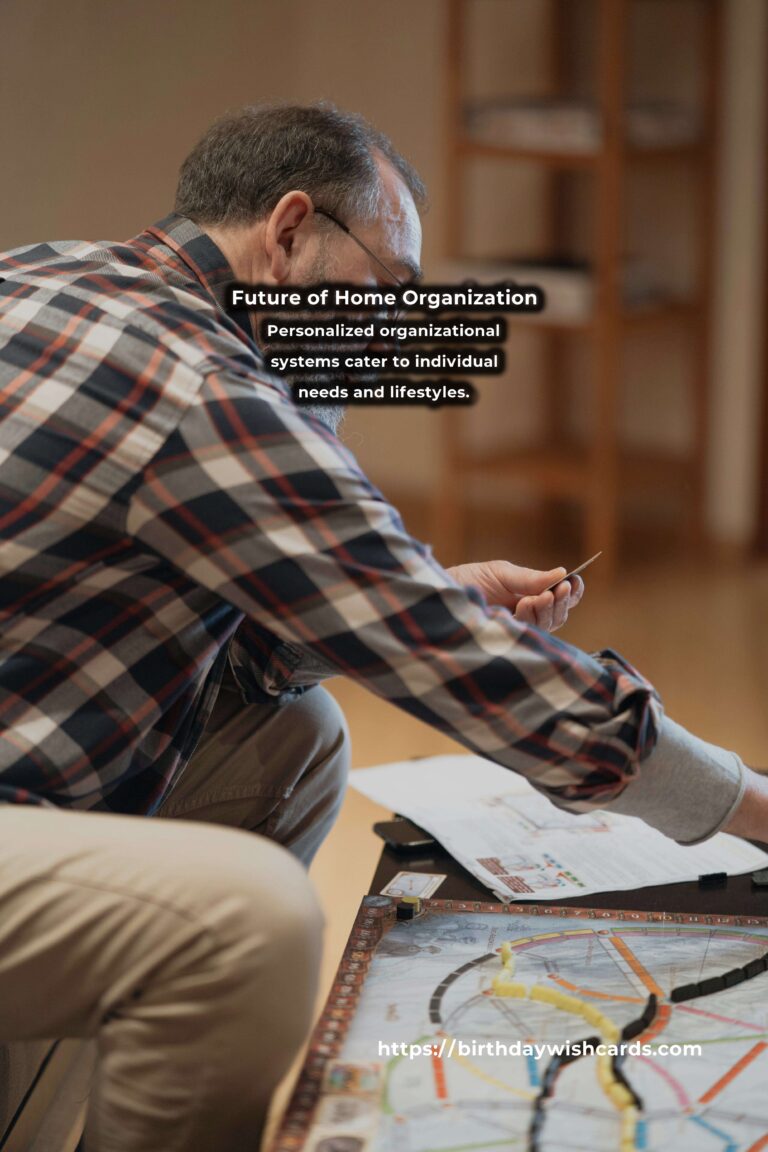
In a world that is increasingly fast-paced, the way we organize our homes is evolving. The future of home organization lies in smart solutions, sustainable practices, and a deeper understanding of personal habits. This article explores these trends and how they are set to shape the way we manage our living spaces.
Smart Home Technologies
Smart home technologies are at the forefront of home organization. With the advent of the Internet of Things (IoT), everyday items are becoming interconnected, leading to more efficient household management. Smart storage solutions, automated cleaning devices, and voice-activated assistants are just a few examples of how technology is making home organization easier.
Smart shelves that adjust based on the items they hold, or refrigerators that track food inventory and expiration dates, help minimize clutter and waste. These innovations not only save time but also enhance the efficiency of our daily routines.
Sustainable and Eco-Friendly Solutions
As awareness of environmental issues grows, sustainable home organization is becoming a priority. This includes using eco-friendly materials, such as bamboo or recycled plastics, and promoting minimalist lifestyles to reduce consumption.
Upcycling and repurposing items are also key trends. Instead of discarding old furniture or décor, homeowners are finding creative ways to give these items new life, reducing waste and saving money.
Personalized Organizational Systems
Understanding personal habits is essential to effective home organization. The future will see a shift towards personalized organizational systems that cater to individual needs and lifestyles.
Customizable storage solutions and furniture that adapts to living spaces are becoming more popular. These systems allow for flexibility and adaptability, making it easier to maintain order in a home that is constantly evolving.
The Role of Artificial Intelligence
Artificial intelligence (AI) plays a significant role in the future of home organization. AI can analyze data to predict organizational needs, automate mundane tasks, and even suggest improvements to existing systems.
For instance, AI-powered assistants can learn a family’s schedule and adjust lighting, heating, and security systems accordingly, creating a seamless living environment that adapts to the occupants’ needs.
Conclusion: A Clutter-Free Future
The future of home organization is bright with possibilities. By embracing smart technologies, sustainable practices, and personalized solutions, we can create living spaces that are not only functional but also conducive to a healthy and harmonious lifestyle.
As these trends continue to develop, our homes will become more than just places to live; they will be personalized sanctuaries that reflect our values and enhance our well-being.
The future of home organization lies in smart solutions, sustainable practices, and a deeper understanding of personal habits. Smart home technologies are making home organization easier and more efficient. Sustainable home organization prioritizes eco-friendly materials and minimalist lifestyles. Personalized organizational systems cater to individual needs and lifestyles. Artificial intelligence plays a significant role in automating tasks and enhancing organizational systems.
#HomeOrganization #SmartHome #SustainableLiving #AI #Minimalism













